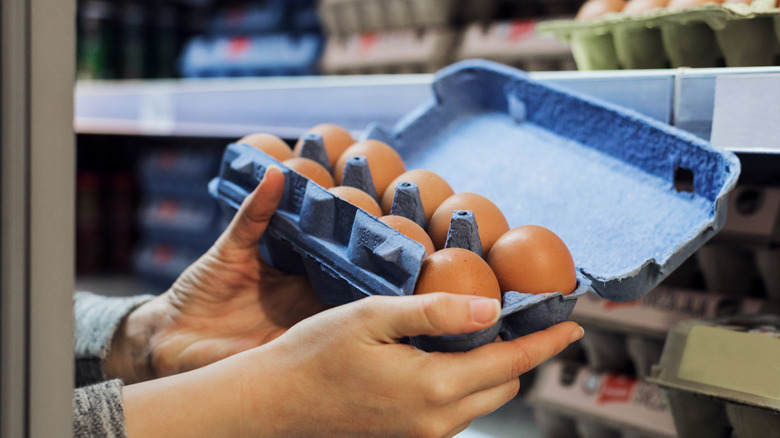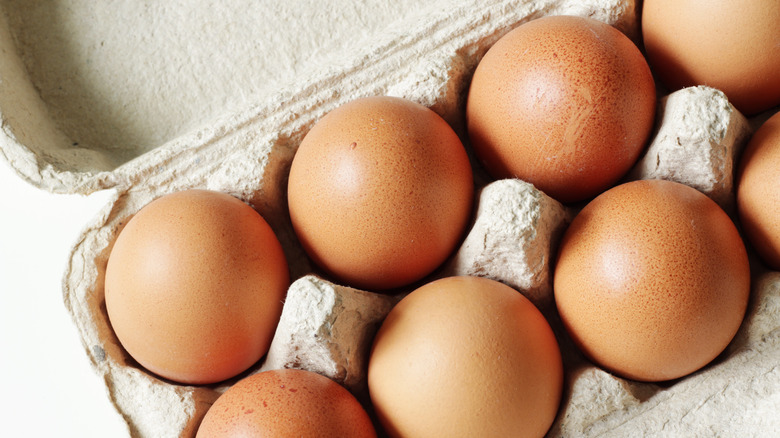On The Bright Side, Eggs Are Getting Slightly Cheaper
It's hard to stay positive amidst rising prices at the grocery store, but consumers can find solace in one trend: egg prices are staying down. According to Yahoo Finance, in April 2023, eggs got a 1.5% price dip. This might not seem like much, but look at the bigger picture: In August 2022, grocery prices increased by 13.5%. Regarding eggs (and other poultry products), things were pretty dire. Per Business Insider, consumers in several states shelled out upwards of $6 per carton and nearly $10 in Hawaii toward the end of 2022.
Egg prices have been so volatile over the past year due to a few factors, the largest being the record-breaking avian influenza, which has killed upwards of 58 million poultry birds, leaving a severe shortage of egg-laying hens. The CDC reported that H5N1 avian flu impacts 47 states as of May 2023. At the height of the price spike, shoppers joked about taking out a loan to buy a carton, and potato farmers made plays for a decorative spot on the Easter table. As the industry recoups from the outbreak, things are starting to look sunny-side-up. March 2023 saw an 11% drop in egg prices as diesel prices lowered shipping costs and egg farmers recovered, with news of further ease on the horizon. Those changes may be materializing: Wholesale egg prices, a predictor of grocery store prices, reached their lowest ($1.22) since 2021 at the end of April, a decline from $3.54 around Easter 2023, according to CNBC.
What the drop in egg prices means for future months
Sure, the trend away from egg-flation is an excellent relief, but let's not get ahead of ourselves. After all, according to FRED, egg prices are still $3.27 per dozen on average, a boggling 21.4% higher than they were in 2022. April's decline of 1.5% was much smaller than March's 11% plummet. While something is better than nothing, egg prices usually see a natural dip post-Easter and bottom out in the summer months anyway, meaning that consumers should manage their expectations come fall.
Furthermore, April's overall numbers surrounding food inflation in grocery stores indicate a slight decrease in the trend compared to the previous month. In March 2023, the drop in the Consumer Price Index for food, the most common metric used to measure inflation, was .3% (compared to April's .2% decrease), and the overall CPI increased by .4% (via BLS). As other factors affect prices across the board, it's hard to say just how sustainable the decrease in food inflation will be. That said, it's about the little victories. So, maybe now is finally the time to enjoy that egg-heavy dish you've been waiting to make or add an extra yolk to your morning omelet.

